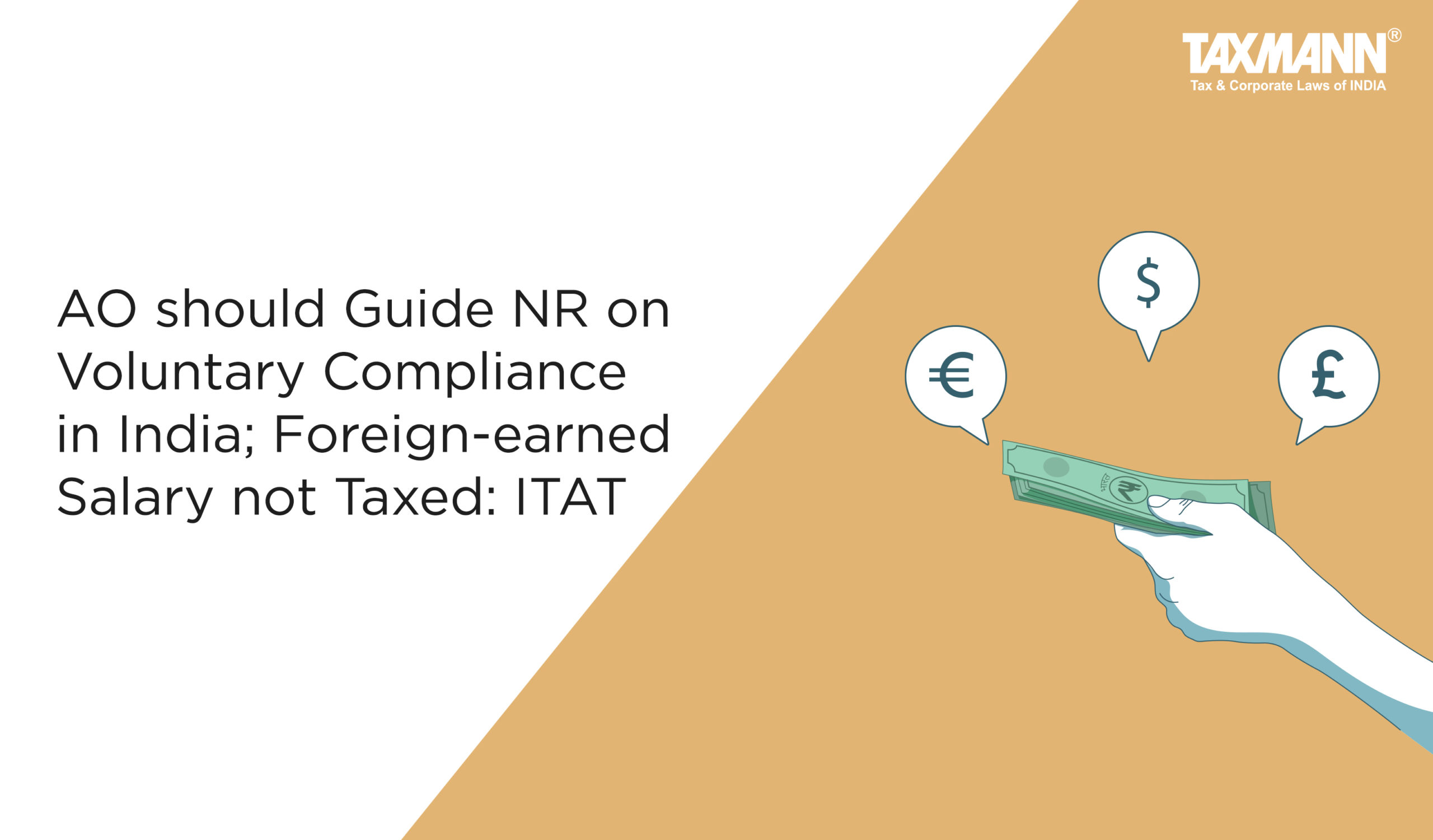AO should Guide NR on Voluntary Compliance in India; Foreign-earned Salary not Taxed: ITAT
- Blog|News|International Tax|
- 2 Min Read
- By Taxmann
- |
- Last Updated on 15 July, 2023

Case Details: Pappu Singh Rajpurohit v. Assessing Officer - [2023] 151 taxmann.com 518 (Jaipur-Trib.)
Judiciary and Counsel Details
-
- Sandeep Gosain, Judicial Member & Rathod Kamlesh Jayantbhai, Accountant Member
- Om Prakash Rajpurohit & Rajat Mohan, CA’s for the Appellant.
- Smt. Runi Pal, Addl. CIT for the Respondent.
Facts of the Case
The assessee was a tax resident of Kenya. During the year under consideration, he earned salary income from his employer in Kenya. He had filed his return of income and inadvertently declared and offered to tax said salary income as taxable in India along with foreign tax credit w.r.t. taxes paid in Kenya.
Later, assessee filed rectification application under section 154. However, Assessing Officer (AO) rejected the rectification application and raised tax demand and interest.
On appeal, the CIT(A) upheld the order of AO. The matter reached before the Tribunal.
ITAT Held
The Tribunal held that the assessee was a non-resident Indian earning income as salary from Kenya. He had inadvertently shown the income of salary earned out of India while filing the ITR. AO has not disputed that the assessee was a non-resident Indian earning income from salary sourced and earned from Kenya.
It is also not disputed that the assessee, on bona fide belief, wrongly showed on salary income which was charged to tax inadvertently, for which he has requested the Assessing Officer to rectify the order as per provisions of section 154.
AO dismissed the rectification application filed by the assessee on the ground that the assessee had not disputed the adjustment made under section 143(1). It is noted that it would be too technical for non-resident Indian to go into the intricacy of Indian income tax once the assessee has fairly moved an application under section 154.
Assessing Officer should have guided the non-resident and passed the order on merits. AO must guide the assessee who is complying voluntarily based on the e-mail addressed to him, and it should not be the AO’s intention to tax the income which is not chargeable to tax in India.
Thus, AO was to be directed to call for the details of the salary from the assessee and determine the fact as to whether, considering the facts and circumstances of the case, the salary income is chargeable to tax in India or not.
Disclaimer: The content/information published on the website is only for general information of the user and shall not be construed as legal advice. While the Taxmann has exercised reasonable efforts to ensure the veracity of information/content published, Taxmann shall be under no liability in any manner whatsoever for incorrect information, if any.

Taxmann Publications has a dedicated in-house Research & Editorial Team. This team consists of a team of Chartered Accountants, Company Secretaries, and Lawyers. This team works under the guidance and supervision of editor-in-chief Mr Rakesh Bhargava.
The Research and Editorial Team is responsible for developing reliable and accurate content for the readers. The team follows the six-sigma approach to achieve the benchmark of zero error in its publications and research platforms. The team ensures that the following publication guidelines are thoroughly followed while developing the content:
- The statutory material is obtained only from the authorized and reliable sources
- All the latest developments in the judicial and legislative fields are covered
- Prepare the analytical write-ups on current, controversial, and important issues to help the readers to understand the concept and its implications
- Every content published by Taxmann is complete, accurate and lucid
- All evidence-based statements are supported with proper reference to Section, Circular No., Notification No. or citations
- The golden rules of grammar, style and consistency are thoroughly followed
- Font and size that’s easy to read and remain consistent across all imprint and digital publications are applied



 CA | CS | CMA
CA | CS | CMA
